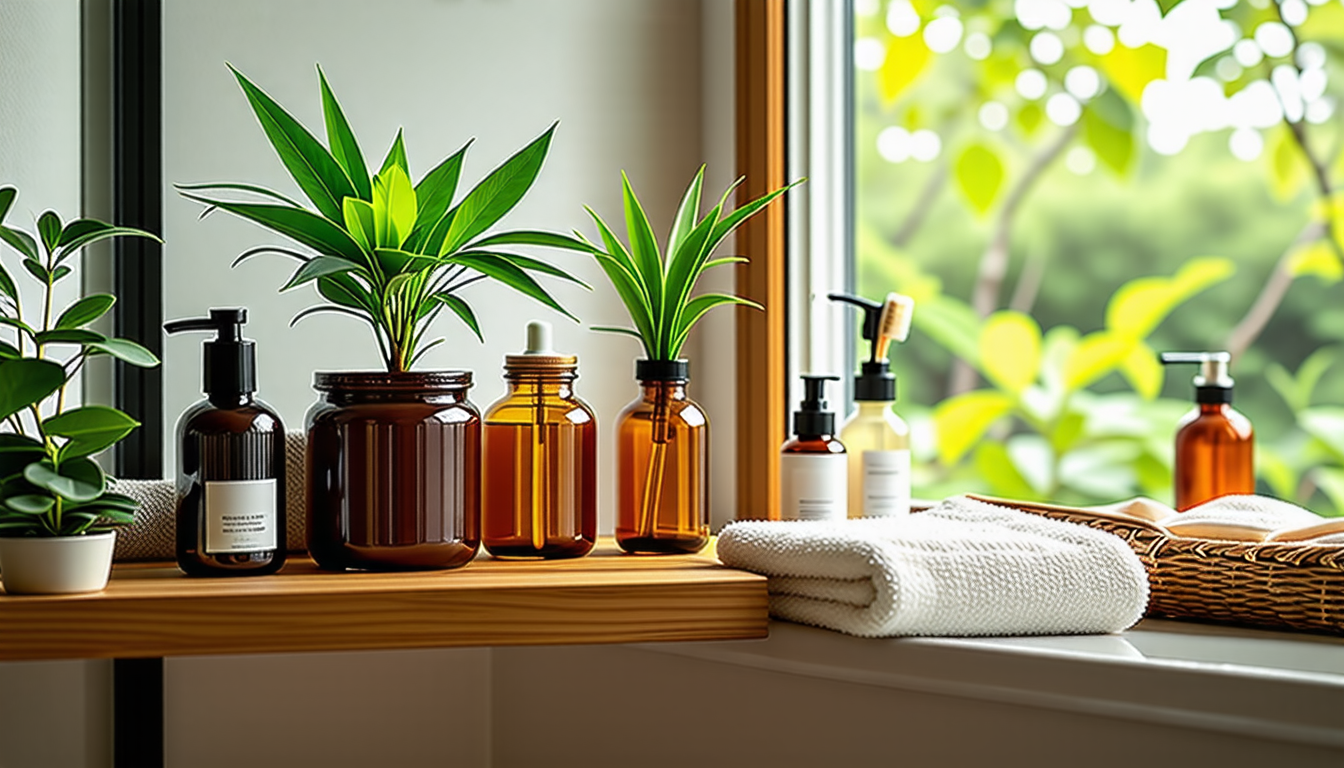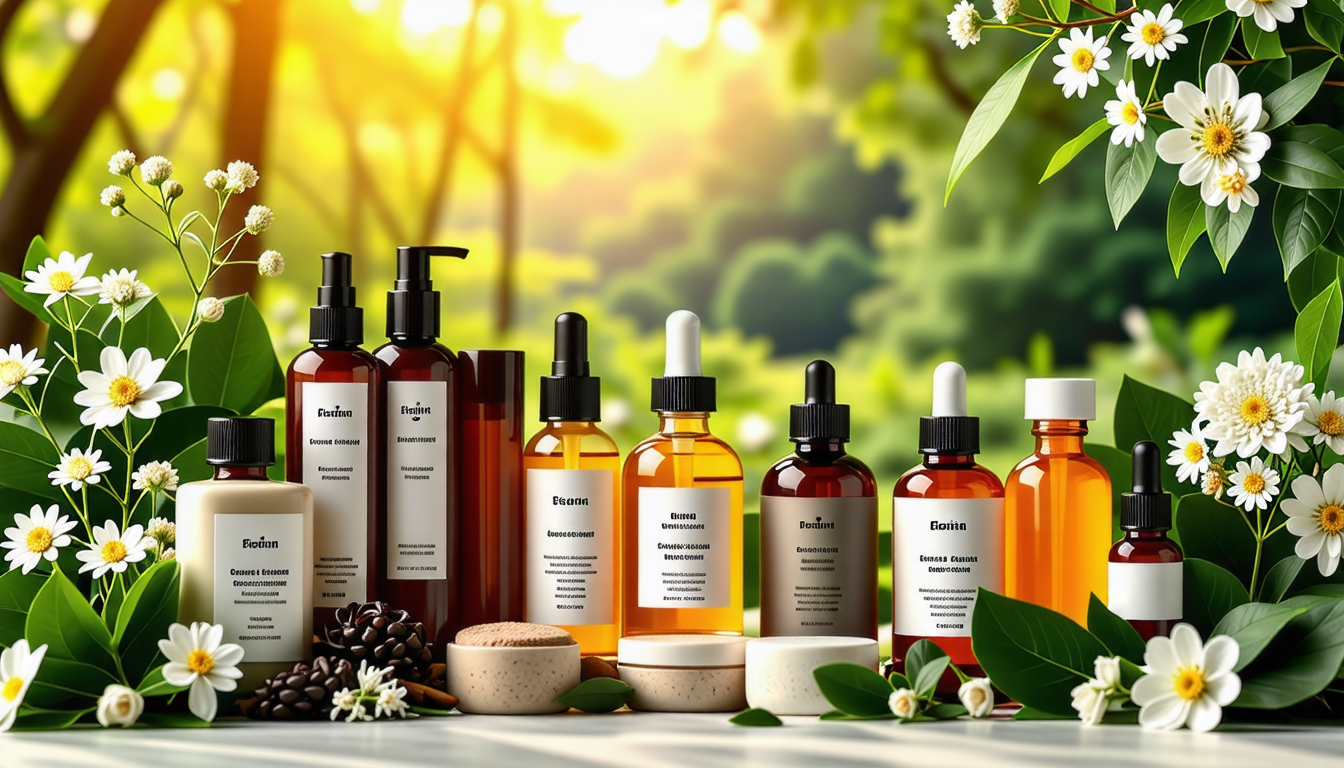|
IN BRIEF
|
In recent years, a revolutionary wave has swept through the beauty industry, igniting a passion for organic beauty brands that emphasize purity and sustainability. This movement transcends mere aesthetics, challenging traditional formulations laden with chemical ingredients and embracing the innate power of nature. With consumers becoming increasingly conscious of their choices, the demand for eco-friendly and natural products has skyrocketed, propelling brands into the spotlight that prioritize not only effective ingredients but also a commitment to ethical practices. The influence of these organic pioneers is transformative, reshaping consumer expectations and redefining industry standards. From luxurious skincare concoctions to vibrant makeup options, the rise of these brands reflects a broader cultural shift towards sustainable living, making the beauty regimen not only a personal indulgence but a conscious lifestyle choice.
Exploring the Rise of Organic Beauty Brands
The beauty landscape has undergone a drastic transformation in recent years, driven primarily by a surge in demand for products that prioritize health and sustainability. Organic beauty brands have emerged at the forefront of this shift, challenging traditional formulations by introducing alternatives that are not only effective but also environmentally friendly. As consumers become increasingly aware of the ingredients used in their cosmetics, it’s essential to explore the evolution of this sector and its broader implications for the beauty industry.
The Emergence of Organic Ingredients
At the heart of the rise of organic beauty brands is the shift towards using natural ingredients that are free from harmful chemicals and toxins. Many consumers are now seeking products that align with their values, choosing items that are as good for the skin as they are for the planet. This has catalyzed a movement away from synthetic formulations, creating a demand for products that boast transparency in sourcing and manufacturing processes.
Incorporating organic ingredients into beauty products is not just a passing trend, but a reaction to a growing consciousness about the long-term effects of the harsh chemicals often found in conventional cosmetics. Brands have responded by highlighting their use of organic farming practices, ensuring non-GMO ingredients, and prioritizing sustainable sourcing methods.
Understanding Consumer Preferences
Research shows that a significant portion of consumers now actively favors brands that offer eco-friendly and organic options. This consumer behavior is influenced by a broader cultural shift toward health and wellness, where individuals are becoming more discerning about what they put on their skin. As a result, consumers often scrutinize labels, seeking brands that communicate a commitment to sustainability and ethical practices.
Moreover, this preference for organic beauty solutions has been amplified by social media influencers who advocate for clean beauty practices. These platforms serve as a powerful medium for educating consumers and fostering community dialogues around the benefits of using organic products. As a consequence, brands that embrace these values typically enjoy heightened visibility and consumer loyalty.
The Impact on the Beauty Industry
The rise of organic beauty brands has created a significant ripple effect throughout the beauty industry, encouraging even established companies to reconsider their formulations and sourcing practices. This push for sustainable beauty has prompted brands to innovate, looking for ways to incorporate organic ingredients into their product lines while maintaining efficacy and appeal.
In addition, the competitive landscape is shifting; brands that rely solely on traditional methods start to find it challenging to keep pace with those who adopt organic practices. This evolution is a response to consumer demand for more ethical considerations in beauty products, an expectation that is now shaping business strategies from start-ups to legacy brands.
An Expansion in Product Offerings
While skincare has historically dominated the organic beauty sector, the influence of organic ingredients has spurred innovation across various product categories, including makeup, hair care, and fragrances. Brands are now crafting entirely organic lines, offering an extensive range that includes foundations, lipsticks, shampoos, and even perfumes—all formulated with clean and natural ingredients.
Companies are also increasingly utilizing biodegradable packaging and pursuing refillable options, aiming to reduce plastic waste and promote a circular economy. This holistic approach not only appeals to environmentally conscious consumers but also positions brands as leaders in the industry.
Challenges Faced by Organic Beauty Brands
Moreover, as popularity continues to rise, the influx of new entrants into the organic beauty market poses competition for established names. New brands may emerge with bold marketing claims, but their effectiveness and quality can sometimes remain unverified, leading to consumer skepticism. This dynamic underscores the importance of transparency and education in building consumer trust.
Adapting to Market Demands
Organic brands must continuously evolve, not only to meet consumer expectations but also to stay relevant in an ever-changing landscape. With the growing emphasis on clean ingredients, brands are increasingly investing in research and development to enhance their product offerings. This necessity goes hand-in-hand with a commitment to ethical practices, positioning themselves as advocates for healthier lifestyles.
Collaboration within the industry has also become essential. By joining forces with organizations that share their values, brands can amplify their message and make a more significant impact. Partnerships enable companies to educate consumers about the benefits of organic beauty products while championing necessary changes across the industry.
The Future of Organic Beauty Brands
As the organic beauty trend matures, one can anticipate the evolution of consumer preferences. The definition of « natural » will likely be scrutinized more deeply, and brands that aim to define themselves as organic must ensure their practices truly reflect their claims. This holds great potential for innovation, where brands may explore unique formulations, creating effective products that set new standards in the industry.
Additionally, consumer expectations will continue to rise, leading to greater demands for transparency within the beauty sector. Brands will need to illustrate how their products are made, sourcing practices, and the benefits associated with their use. Transparency breeds trust, and in a competitive marketplace, trust can be a game-changer.
Keeping Sustainability at the Core
The focus on sustainability is set to remain a key driver for future success in the beauty industry. As environmental concerns escalate, brands are adopting practices that not only lessen their ecological footprint but also contribute positively to global sustainability efforts. By reinforcing their commitment to sustainability, brands can engage consumers who are eager to support businesses that protect the planet.
This journey toward sustainable beauty also reflects changing consumer behaviors. Shoppers are progressively opting for fewer, high-quality products over fast fashion alternatives, leading to a preference for brands that espouse longevity, sustainability, and ethical responsibility.
The Consumer Responsibility Factor
With the rapid rise of organic beauty brands, consumers have a shared responsibility to educate themselves on their options. Understanding the implications of their choices on personal health and the environment can empower them to make informed decisions. Consumers are encouraged to evaluate product ingredients critically and to prioritize those that align with their values.
This drive for self-education is vital in developing a more informed consumer base that supports genuinely organic and ethical brands. As knowledge spreads, consumers can create a ripple effect, pushing even traditional brands to adapt and innovate.
Trends to Watch in Organic Beauty
Looking ahead, several trends suggest a bright future for organic beauty brands. For example, the rise of biotechnology in formulating ingredients may pave the way for groundbreaking advancements that enhance the effectiveness of organic products. Cultivating new, naturally-derived ingredients with high efficacy can reframe the efficacy narrative in the organic sector.
Moreover, consumer interest in personalization may lead to an increase in brands offering customized skincare solutions. By utilizing natural ingredients tailored to individual skin concerns, brands may enter a new era of bespoke beauty that resonates with health-conscious consumers.
Empowered by Community and Education
The rise of organic beauty brands underscores the importance of community and education. Consumers are seeking not just byproducts, but relatable stories and values that resonate with their own. Brands that foster community engagement, share educational content, and contribute to local causes will likely see elevated levels of loyalty and support.
Increasingly, brands are leveraging digital platforms to connect with customers, providing them with valuable resources that encourage them to take charge of their beauty routines. This commitment to education, transparency, and community engagement will continue to be hallmarks of successful organic beauty brands.
The rise of organic beauty brands signifies not only a trend but a fundamental shift within the beauty industry. As the desire for natural products continues to grow, these brands have the potential to reshape consumer perceptions, reformulate traditional approaches, and advocate for sustainability within the sector. With an empowered consumer base that values transparency and ethical practices, the landscape of beauty will undoubtedly continue to evolve in exciting ways.
The beauty landscape is undergoing a remarkable transformation, largely driven by the rise of organic beauty brands. In 2023, the natural cosmetics market reached an impressive value of USD 12.49 billion, with a forecasted annual growth rate of 6.4%. This shift indicates a growing preference for eco-friendly and chemical-free products among consumers.
As awareness about the importance of sustainability increases, brands are prioritizing transparency and ethical sourcing. For instance, many companies are adopting recyclable packaging and exploring refillable options. This not only reduces plastic waste but also resonates with consumers who seek to make conscious choices. Furthermore, the emergence of clean beauty trends in 2024 highlights the demand for products that are both safe and environmentally responsible.
Moreover, it is essential for brands to engage with their audience through education on the advantages of organic ingredients. By informing consumers about the benefits of using natural skincare, brands can foster loyalty while promoting a healthier lifestyle. Ultimately, this movement is reshaping the beauty industry, encouraging innovation and a commitment to sustainability.
The beauty landscape is evolving, driven by a palpable shift towards organic products that resonate with consumers’ growing consciousness about health and the environment. As organic beauty brands gain traction, their emphasis on sustainability and transparency is redefining industry standards. The increasing demand for natural ingredients free from harmful chemicals not only benefits the consumers but also supports ethical practices in sourcing and production. With innovations in packaging that prioritize zero waste initiatives, these brands are setting a precedent for future sustainability. As we witness the rise of these conscious cosmetics, it’s clear that embracing nature is not just a trend—it’s a shift towards nurturing both our skin and our planet.
FAQ
What are organic beauty brands?
R: Organic beauty brands focus on using natural ingredients that are sourced sustainably. They prioritize formulations that are free from harmful chemicals, promoting eco-friendly practices while delivering effective beauty solutions.
How are organic beauty brands changing the beauty industry?
R: The emergence of organic beauty brands is shifting the industry landscape by demanding more sustainable practices. This has led to increased transparency about ingredients and methods, urging traditional brands to reconsider their formulations and packaging.
What benefits do organic beauty products offer?
R: Organic beauty products are generally safer for your skin as they contain fewer synthetic chemicals. Moreover, they often provide nourishing properties, supporting healthier skin and reducing the risk of allergic reactions.
How can consumers identify truly organic beauty brands?
R: Consumers can look for brands that are certified organic by reputable organizations. Additionally, brands that openly disclose their ingredient sourcing and sustainable practices tend to be more reliable.
Is the organic beauty market growing?
R: Yes, the organic beauty market is witnessing significant growth, driven by the increasing consumer demand for natural and eco-friendly products. This trend is projected to continue, reflecting a broader shift towards sustainability in personal care.

